
The AIgorythm project

Playwright and actor
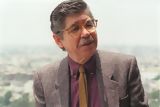
Novelist

Writer and poet

Volleyball player

Italian-Peruvian naturalist and geographer

Singer and percussionist

Last Inca emperor

Politician, former prime Minister

Journalist and TV host
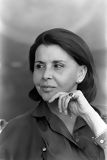
Poet

Inca warrior

Actor and comedian

Biophysicist

Poet

Doctor and researcher

Businessman, Interbank group

Journalist and writer
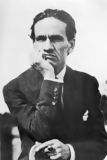
Poet and writer
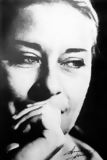
Singer and songwriter
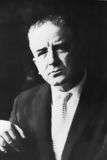
Writer

Film director, Berlin Golden Bear winner

Football player
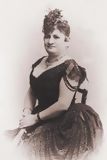
Writer and journalist
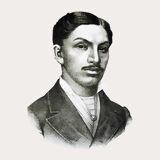
Doctor and scientist

Photograph

Chess player

Industrialist
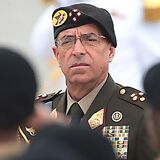
Former general

Specialist in public health

Actress and singer

Afro-Peruvian music singer

Mathematician and engineer

Indigenous chronicler

Neurologist and anthropologist

Painter

Football player
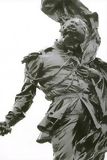
National hero, military leader

Intellectual and reformer

Chef and entrepreneur

Fashion designer

Singer-songwriter

TV presenter

Marathon runner

Indigenous Peruvian chronicler

Theologian

Former national team captain

Economist and former health minister

Inca princess

Writer and television host

Folk musician

Poet and guerrilla
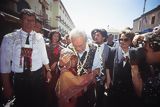
Former UN secretary-general

Chef, known for fusion cuisine

Football player

Peruvian aviation pioneer

Poet and artist
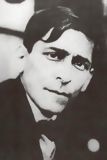
Marxist philosopher and writer

Industrialist and businessman
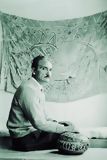
Novelist and ethnologist

Painter and muralist

Opera tenor

Fashion designer

Cardinal of Lima

Peruvian tennis player

Football coach

Leader of the indigenous rebellion
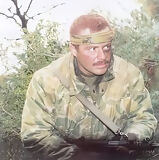
Military hero

Latin singer
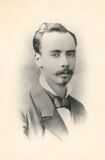
War of the Pacific hero

The youngest mother in history

Politician
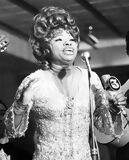
Creole music singer

Tennis player
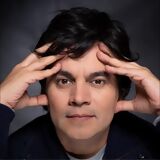
Musician

Writer and politician

Politician and founder of the Christian Democratic Party

Founder of Sodalitium Christianae Vitae

Archaeologist and anthropologist
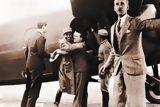
Military leader and politician

Television host
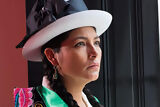
Actress and singer

Contemporary sculptor

Women’s rights activist

Beauty queen

Astrophysicist

Heroine of independence

Mathematician and archaeologist

Historian and anthropologist
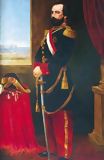
Military figure and historical figure

Fashion photographer
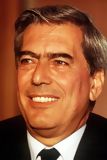
Writer, Nobel Prize in Literature, Politician

Revolutionary leader
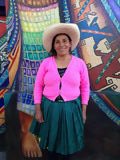
Environmental activist

Leader of the indigenous rebellion

Musician from Gaia band
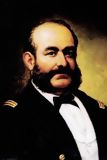
War hero
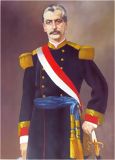
Military leader and politician

Chef, known for Nikkei cuisine

Volleyball coach and former player

Environmental activist

Television personality

Writer

Football player

Epidemiologist and former health Minister

Inventor and aerospace pioneer

Soldier and inventor

Rock singer

Chef and co-owner of Central restaurant

Painter

Football player

TV presenter and actress
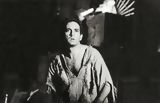
Actor
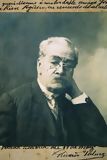
Writer and historian

Journalist and lawyer

Archaeologist, founder of Caral site
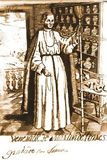
Monk and Saint
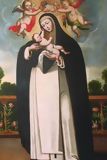
Saint, patron of Latin America

Physicist and engineer

World champion surfer

Actress

Oncologist

Singer, Latin Grammy winner

Former mayor of Lima

Singer

Actress

Former football player

Painter
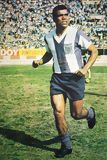
Former football player

Painter

Inca leader

Archbishop, saint
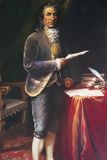
Leader of the indigenous rebellion

Revolutionary indigenous leader

Diplomat and intellectual

Sculptor and painter
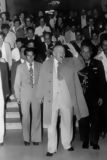
Political leader, founder of APRA

Lawyer and Former prime minister

Chef of Central restaurant

Former head of secret services

Popular singer

Fashion designer

Exotic music singer
Ciro Alegría, born on November 4, 1909, in Sartimbamba, La Libertad region of Peru, is one of the greatest Peruvian writers of the 20th century. Known for his commitment to the indigenous peoples and peasants of Peru, his literary work portrays, with deep humanity, the rural life and social struggles of Andean communities. Through his novels and short stories, Alegría not only contributed to Peruvian and Latin American literature, but he also gave a voice to the oppressed and sought to raise awareness about social injustices.
Ciro Alegría was born in a rural region of The Andes, a land of mountains, rivers, and vast agricultural fields. This upbringing in a natural and traditional setting deeply influenced his artistic sensitivity and social commitment. From an early age, he witnessed the hardships endured by indigenous peoples and peasants, who suffered from injustice, exploitation, and poverty.
He studied in Trujillo, where he became part of the intellectual group of APRA (American Popular Revolutionary Alliance), a political movement that advocated for social justice and the defense of indigenous rights. This political commitment led to his arrest and exile, but it also fueled his desire to express himself through writing.
Ciro Alegría's works are marked by a profound empathy for Peru's indigenous and rural communities. Through his novels, he sought to depict the struggles of these populations against the oppression and exploitation of large landowners, known as "gamonales." His literary commitment is inseparable from his political one, and he was often regarded as a militant writer who used his stories to denounce social injustices.
His first major novel, *La Serpiente de Oro* (1935), is a tribute to the lives of the people living on the banks of the Marañón River. The story follows a community of fishermen and peasants struggling not only against the forces of nature but also human exploitation. The work is a poetic exploration of the traditions and challenges of rural Peruvian life, marked by deep respect for the land and its inhabitants.
In 1939, Alegría published *Los Perros Hambrientos*, another landmark novel in his career. This story focuses on the hardships faced by a peasant family during a devastating drought and famine. The dogs, faithful companions of the peasants, play a symbolic role in the story, representing both survival and the constant battle against adversity.
*Los Perros Hambrientos* is a deeply naturalistic novel, where Alegría describes with great precision the arid landscapes of The Andes and the difficult living conditions of the peasants. The novel highlights the close ties between humans and nature while exposing the social and economic inequalities that exacerbate the suffering of rural communities.
Ciro Alegría's most famous novel, *El Mundo es Ancho y Ajeno* (1941), is considered one of the masterpieces of Latin American literature. This epic story tells of an indigenous community's struggle to defend its land against the greed of large landowners. Through this tale, Alegría portrays the collective fight for survival and dignity, while denouncing the structural injustices that oppress indigenous populations.
This novel is often compared to the great works of social realism, such as *The Grapes of Wrath* by John Steinbeck. Alegría describes indigenous characters with great humanity, giving a powerful voice to those who have historically been marginalized. *El Mundo es Ancho y Ajeno* is a deeply political work that advocates for agrarian reform and the recognition of indigenous rights.
Due to his political activities and affiliation with the APRA movement, Ciro Alegría was exiled multiple times, living in Chile and the United States. This exile, far from diminishing his commitment, encouraged him to continue writing and fighting for the cause of peasants and indigenous peoples.
He was eventually able to return to Peru in 1948, where he resumed his work as a writer and journalist. While he remained active in politics, his primary legacy is as a defender of indigenous culture and peasant rights. His return to Peru marked a period of reflection on social struggles and the reforms needed to improve the condition of rural communities.
Ciro Alegría's impact on Peruvian and Latin American literature is immense. Through his novels, he revealed the harsh realities of peasant and indigenous life, while celebrating their resilience and deep connection to the land. His work continues to inspire writers, activists, and intellectuals who fight for social justice and the recognition of marginalized peoples' rights.
Today, Ciro Alegría is considered one of the greatest representatives of the indigenista literary tradition, alongside figures like José María Arguedas. His novels are studied in schools and universities, and they remain essential testimonies of the struggle for equality and justice in rural Peru.
Ciro Alegría left an indelible mark on the literary and social history of Peru through his commitment to indigenous peoples and peasants. Through works like *La Serpiente de Oro*, *Los Perros Hambrientos*, and *El Mundo es Ancho y Ajeno*, he gave voice to the oppressed while denouncing social injustices. His work, deeply rooted in Andean land and culture, continues to inspire future generations of writers and activists. Ciro Alegría will always be a symbol of the fight for social justice and human dignity.